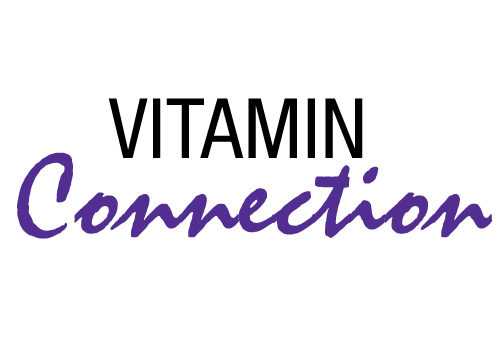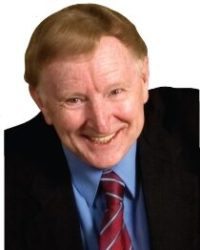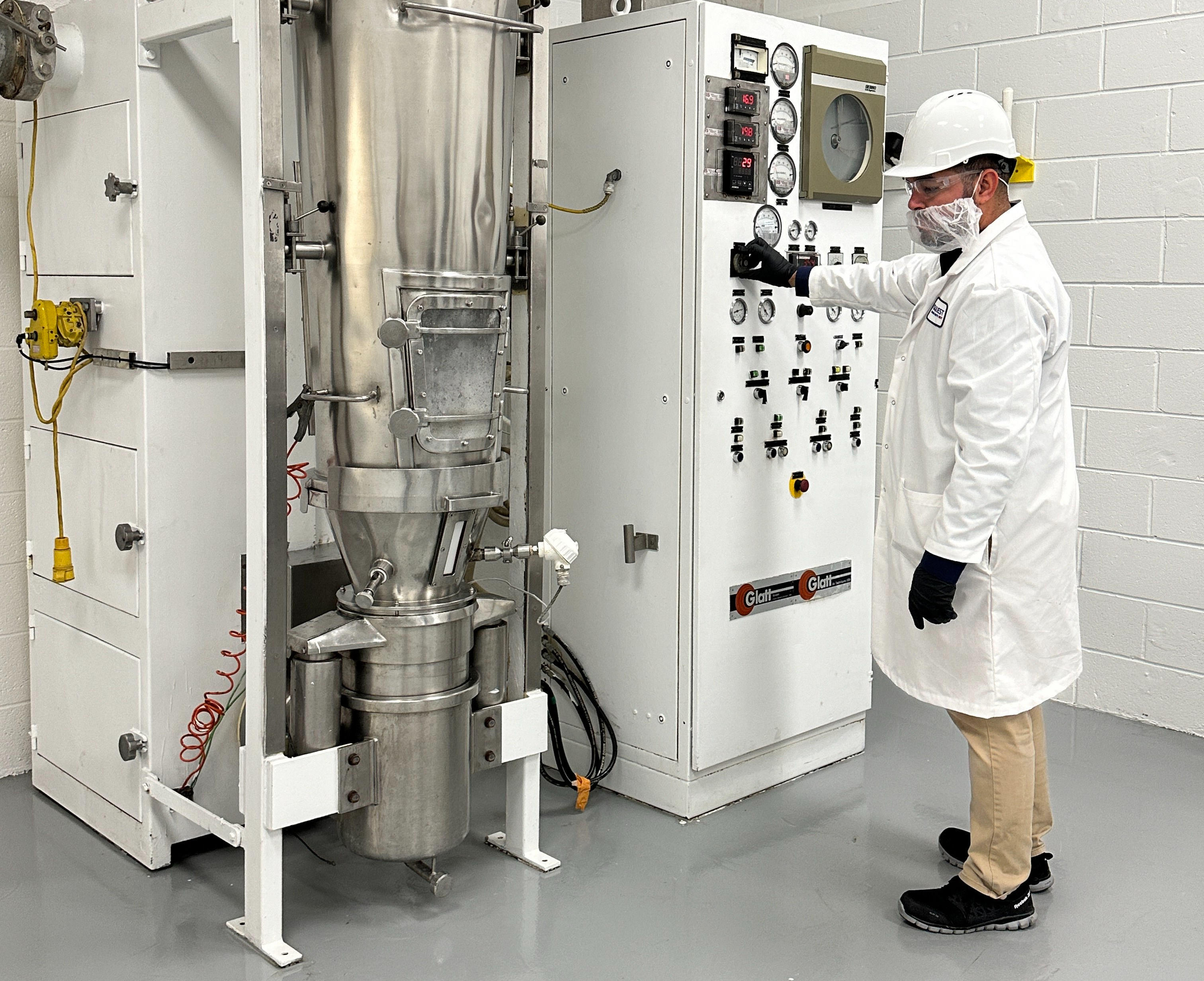During these trying economic times, more and more people have either chosen or been forced to become more involved with overseeing their own healthcare. As Andrew W. Saul, Ph.D., says on his Web site (www.doctoryourself.com), “If you want something done right, you have to do it yourself. This especially includes your health care.”
To help in this regard, Dr. Saul has updated and expanded his book, Doctor Yourself. In this new edition, Dr. Saul cites abundant scientific evidence as well as case studies from his decades of practice and explodes the myth that an army of medical specialists and pharmaceutical drugs is necessary to maintain health. We have had the pleasure of having Dr. Saul discuss health and research with us in previous columns, and he now takes the time to chat with us about the advantages of doctoring yourself with natural healing.
Dr. Saul, a biologist and teacher, has been a consulting specialist in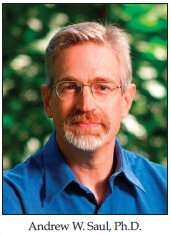 natural healing for more than 35 years, helping medical doctors’ problem patients get better. He has written a dozen books and has published over 170 reviews and editorials in peer-reviewed journals. Dr. Saul is on the editorial board of the Journal of Orthomolecular Medicine and is editor-in-chief of the Orthomolecular Medicine News Service. He was on the faculty of the State University of New York for nine years, has studied in Africa and Australia and has twice won the New York Empire State Fellowships for teaching. Dr. Saul has been awarded the Citizens for Health Outstanding Health Freedom Activist Award. Psychology Today magazine named him one of seven natural health pioneers. His widely proclaimed Web site, www.doctoryourself.com, is one of the largest non-commercial natural healing resources on the Internet.
natural healing for more than 35 years, helping medical doctors’ problem patients get better. He has written a dozen books and has published over 170 reviews and editorials in peer-reviewed journals. Dr. Saul is on the editorial board of the Journal of Orthomolecular Medicine and is editor-in-chief of the Orthomolecular Medicine News Service. He was on the faculty of the State University of New York for nine years, has studied in Africa and Australia and has twice won the New York Empire State Fellowships for teaching. Dr. Saul has been awarded the Citizens for Health Outstanding Health Freedom Activist Award. Psychology Today magazine named him one of seven natural health pioneers. His widely proclaimed Web site, www.doctoryourself.com, is one of the largest non-commercial natural healing resources on the Internet.
Passwater: Doctor Yourself? Can you really become your own doctor?
Saul: Very often, yes. Healing is too big a topic for any one person to know it all. While that statement includes me and you, it also includes your doctor. But it is possible to learn more than your doctor knows, particularly in key areas that specifically apply to you. In fact, you may discover material that your doctor never saw, or did see and never investigated. The Doctor Yourself book is full of such material.
Passwater: How can you say this? Aren’t doctors the ones for this duty; isn’t it their special province to be the formally educated authorities on health?
Saul: Commonly, yes; but, a doctor’s authority in America often exceeds his or her knowledge. Whole bodies of knowledge in healing are ignored because they are unorthodox and non-medical. A doctor’s education seems exhaustive, yet MDs study so much about drugs and surgery—and so little about nutrition, fasting, herbal remedies, spinal manipulation, massage, vitamin and mineral therapy, homeopathy, and more—that we realize their qualifications are incomplete.
This takes nothing away from their dedication as individuals, but they are prone to following certain theories over other theories, particular practices over other alternatives, and holding opinions as well as facts. This is true with any person, certainly, but it is our responsibility to cover all possible ground in our efforts to cure and prevent illness. If we learn more than the doctor in areas of value to our health, it is our duty to apply this knowledge to the betterment of ourselves and our families. We need total health more than medically approved health. Our wellness should not be limited to our doctor’s experience, but enhanced by our own experience.
Passwater: Isn’t modern medicine too much for a layperson to learn?
Saul: Medicine is aptly described as an art, not a science. To this end, four different doctors may have up to four different diagnoses or prescriptions. “Who will decide when doctors disagree?” is an epigram that addresses the question. Indeed, whose judgment is final for your health and life? Why can’t you decide? This seems an awesome responsibility, yet we do it every day. Any mother or father, adult or child constantly makes the most immediate health decisions as the occasion arises.
Passwater: What is the most common health question you are asked?
Saul: Probably, “What is your advice for treating this disease condition?” If only the answer were as quick and easy as the question. After over 36 years of experience in natural therapeutics, I now have what may be the closest thing to an equally concise answer, and here it is: “You need to change your entire life.” Yes, change your life. If you want to get better, that is what you have to do.
The first step is to read a lot, a whole lot. If you are well educated, and especially if you are a health professional, you must unlearn much of what you’ve been taught and start afresh with the rather disruptive thought that natural healing may actually work. If you are not highly educated, you will need to abandon your anxiety and fear of reading and doing research. The old saying is still true: “A person who doesn’t read is no better off than a person who cannot read.”
Passwater: What can we do to take charge of our own healthcare? What first steps can everyone benefit from taking?
Saul: If you have never tried a plant-based diet, start. If you’ve never juiced vegetables, start. If you’ve never taken vitamin C to saturation, start. If you have never done a half-hour fitness workout each day, start. But, there is no such thing as a free lunch, a quick fix or a magic wand to cure illness. I wish there were easy answers to people’s health questions. There aren’t. There are answers, all right, but they are not easy. “Give a man a fish, and he will be hungry tomorrow. Teach a man to fish, and he will always have food.” This is my personal and professional philosophy, because it is true. It is the very core of the Doctor Yourself book.
Modern medicine has created more co-dependents even than co-pays. We’ve learned to hold out for a magic bullet such as a new miracle drug, breakthrough surgical procedure or new organ transplant. What rubbish.
The very word “patient” implies passivity and powerlessness. The Doctor Yourself philosophy is against that. Me-teacher-you-dumbbell, or me-doctor-you-patient, or me-politician-you-voter, or any other paternalistic or maternalistic stay-in-your-place tradition will not pass muster with me. Such were the old ways, and they are obsolete and unproductive. If you want to be productive, follow leads and dig. Whether it is for oil, gold or information, it requires action—your action. Question authority. Do it yourself.
First, you have to ask yourself this most pointed of questions: “What are you willing to do to get better?”
The answer I want, of course, is, “Anything.” But as with wedding vows or New Year’s resolutions, I know better than to hold people too rigorously to their dreams. Flexibility is never more necessary than with self-health care. I will accept a two-thirds effort, for, as a teacher of all grades through post-doctoral, I passed anyone at 65%. More is better, but if you were to entirely change two-thirds of your life, I’d be satisfied and also impressed—especially if you hold to it for more than a year. And, I think you’d be impressed with the results you achieved.
Passwater: Easy to say; harder to do. What if we do it ourselves, and do it wrong?
Saul: Doctors frequently get it wrong. One out 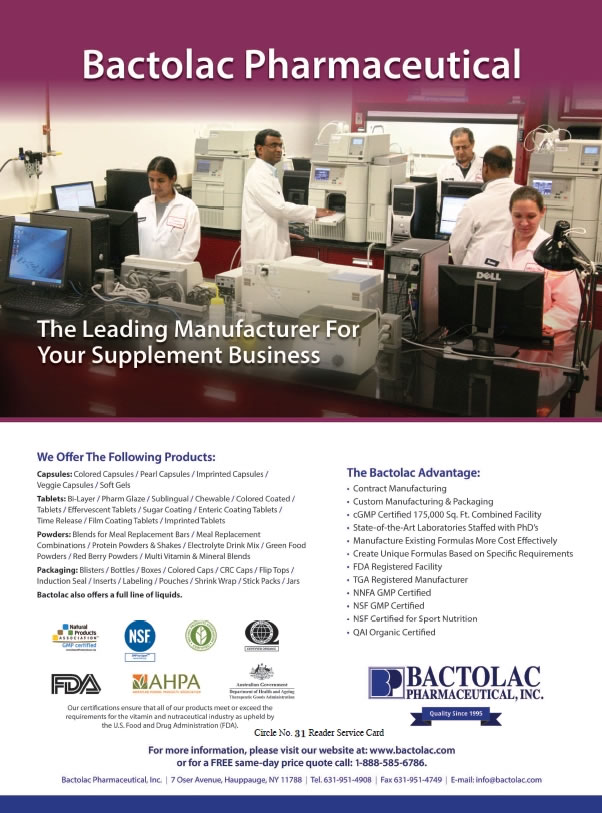 of five patients today is in the hospital because incorrect treatment by a physician put him or her there. This is called the “iatrogenic,” or doctor-caused, illness. A hospital patient can expect one medical error every single day of any hospital stay. Malpractice suits are numerous enough that one may reasonably conclude that there is certainly no guarantee of proper health care by contracting it out.
of five patients today is in the hospital because incorrect treatment by a physician put him or her there. This is called the “iatrogenic,” or doctor-caused, illness. A hospital patient can expect one medical error every single day of any hospital stay. Malpractice suits are numerous enough that one may reasonably conclude that there is certainly no guarantee of proper health care by contracting it out.
Can we do better? Quite possibly. No person knows your body better than you. The world’s most sophisticated and sensitive diagnostic apparatus is your own body’s feelings. We also can take more time and interest, and give more attention to our personal health than a hired professional can. We have learned to go get medical help, not to give it. We have learned to relay our body’s needs to another, not to provide them ourselves.
This can be turned around again. Much of the fear of doing something wrong vanishes when we are knowledgeable about what we are doing. There is no fence around health information to keep us from learning it. Likewise, there is no law preventing us from applying our acquired knowledge in practice to benefit ourselves and our immediate family. The key is to gain the knowledge by wanting to learn, by wanting the responsibility for our own health, and by doing something to learn to do it ourselves. Let no fear or any culturally implied uniqueness of the doctor’s profession keep you from wellness self-reliance.
Passwater: Surely doctors today have far more open minds about alternative health methods?
Saul: Medical doctors are called medical doctors for a reason. They go to medical schools and they learn medicine and practice medicine. Now, substitute the word “nutrition” for the words “medicine” and “medical” in the previous sentences and see how impossible it sounds. So, most medical personnel remain largely unfamiliar with non-medical treatments, and tend to dismiss them without knowing about what they’re dismissing. This is a great loss to the doctor as well as to the public.
Passwater: A lot of the media, professional organizations, politicians and physicians aren’t going to concur with your ideas here, are they?
Saul: Nope, especially since I believe that alternative healing methods are much more than just temporary or half measures. I am not going to give you yet another “use drugs wisely” or “help your doctor help you” speech. That stops short of true wellness self-reliance because it always defers final say to the doctor, and trusts medical, conventional treatments for the “real illnesses.” That will not be the case here.
I believe that your doctor works for you, not the other way around. Your physician is your contractor, and it’s your jobsite. Following the government’s health advice, the American Medical Association, the American Dietetic Association, the syndicated doctor’s advice columns in the newspaper or television commercials for patient remedies will not be recommended, either.
Rather, I offer some unusual substantiation, references, research summaries, obscure clinical material, unpopular preventive or therapeutic measures, little-known or under-used facts and approaches to do-it-yourself health. My presentation is incomplete, of course, because there is so much to know. Doctor Yourself can be a good starting point, sort of a “health homesteader’s handbook.”
Passwater: You discuss a large number of very serious illnesses in Doctor Yourself. Do you really believe that natural healing can go that far?
Saul: Yes. Natural therapies aren’t just another way to fight disease, but are often a superior way to eliminate disease. Doctor Yourself focuses as much as possible on the “real” diseases. Natural healing gets down to the real basics such as your diet and everyday lifestyle...the things that really cause our illnesses, and are really difficult to change.
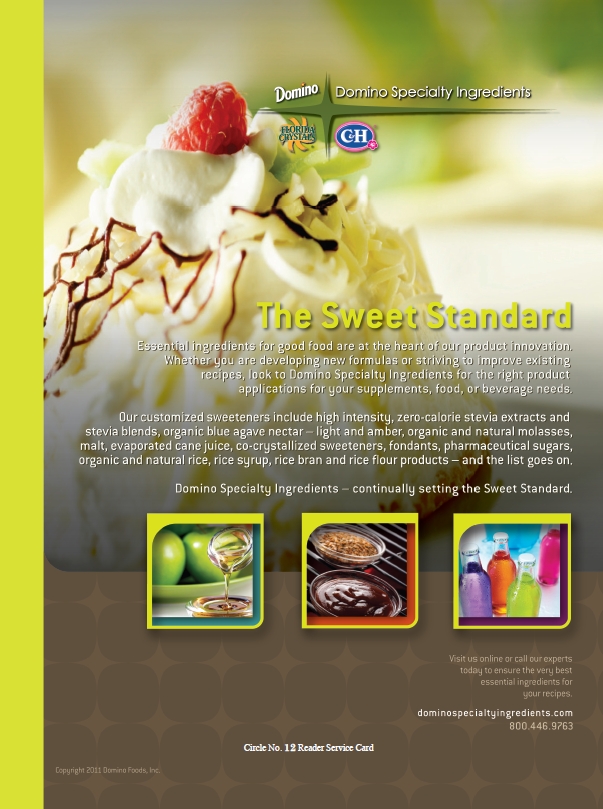 Nature-cure is so simple yet all-embracing that it is best carried out by the patient in daily life. No one can follow you around to see that you eat right, exercise and live happily. It is a distinguishing feature of natural therapies that they are straightforward and reliable enough to safely do on your own, at home.
Nature-cure is so simple yet all-embracing that it is best carried out by the patient in daily life. No one can follow you around to see that you eat right, exercise and live happily. It is a distinguishing feature of natural therapies that they are straightforward and reliable enough to safely do on your own, at home.
Medicine has to be dispensed by a pharmacist, surgery by surgeons. Drug and surgery treatment are not safe by nature; in one case, a chemical or poison is added to the body and in the other, an organ or part of the body is removed or altered. The only way we will have health care for all Americans is when each American takes responsibility for their own health.
Passwater: What about those that may not want to change their lives?
Saul: This is America, and you have the right to remain sick. If you choose to treat yourself and your family, that is within your rights, and is your sole decision based on what you know to be best. Self-care means accepting some risk, and accepting much responsibility. It is not for all people or all cases. Work with your doctor and try to win him or her over to the greatest extent possible.
Passwater: Why do you recommend high amounts of vitamin C?
Saul: Because Linus Pauling did, and he received two more Nobels than I have. I summarize all vitamin C research in this way: Take enough C to be symptom free, whatever that amount may be. That’s going to be a lot more than you think it will be. We go into this in Doctor Yourself in great detail, including strategies to get intravenous vitamin C while hospitalized. Remember, a hospital, by definition, is a collection of our sickest people. Vitamin C is the solution, not the problem. And, remember this too: there have been no confirmed deaths from vitamins in 28 years. Zero.
Passwater: Does vitamin C in large doses cause kidney stones?
Saul: No. Vitamin C actually dissolves phosphate and struvite stones, and prevents oxalate stones by inhibiting the union of calcium and oxalate.
Passwater: How about the doctors who say that if you take large doses of vitamins, you’ll just wind up with expensive urine?
Saul: If you take pharmaceutical medications, you will have even more expensive urine.
Passwater: What else is in the Doctor Yourself book?
Saul: Doctor Yourself has chapters on how can you stop coughing without resorting to cough medicines; alternative cancer treatments; heart disease; multiple sclerosis; infectious diseases; how to get a better night’s sleep; how vitamins can help depression; how to help lower a child’s fever; natural alternatives to antibiotics and antivirals; allergies; how can you eat better cheaper; and literally dozens of other topics. The new second edition is now 400 large pages.
Passwater: If nature-cure is so effective, why don’t doctors prescribe it more often?
Saul: Good health makes a lot of sense, but it does not make a lot of dollars. It’s unreasonable to expect medical doctors and pharmaceutical companies to tell you how to avoid their services by trying the alternatives. You are not going to get a Republican politician to tell you to vote Democratic, and you can’t get chow mein in a French restaurant. Hospitals, doctors and pharmaceutical companies all share a common Achilles’ heel: they all profit from disease. I wish this were not the case, but follow the money and consider the results.
May I add that I have no financial connection with any manufacturer, sales organization or distributor. I’ve had an incredible number of offers to do so over the past decades, but no, I won’t do it. If I sold juicers or supplements, I think most people would (correctly) see that as a conflict of interest.
Passwater: How can vitamin supplements be used to raise healthier families?
Saul: Use vitamins in place of drugs. This takes some moxie to do, for we have been taught to be consumers of medicine. We have been taught that anything cheap and safe cannot possibly be effective. We have been taught to “just eat a balanced diet.” We have been taught wrong. The truth is natural healing works. It certainly has been highly effective for my family. I raised my kids all the way into college, and they never had a single dose of any antibiotic. Not one; not ever. My children never met their pediatricians.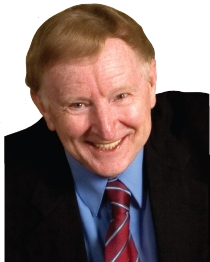
Passwater: How and where can readers get your book?
Saul: Literally any bookseller worldwide can get Doctor Yourself or any of my books (there are a dozen others) for you. I also have autographed copies available at my Web site, www. DoctorYourself.com.
Passwater: Thank you, Dr. Saul, for updating your book and once again sharing your knowledge with our readers. WF
Dr. Richard Passwater is the author of more than 40 books and 500 articles on nutrition. Dr. Passwater has been WholeFoods Magazine’s science editor and author of this column since 1984. More information is available on his Web site, www.drpasswater.com.
Published in WholeFoods Magazine, February 2013

